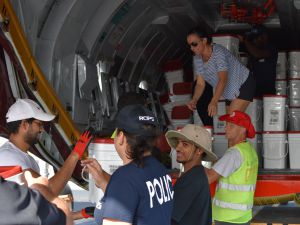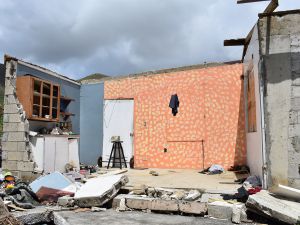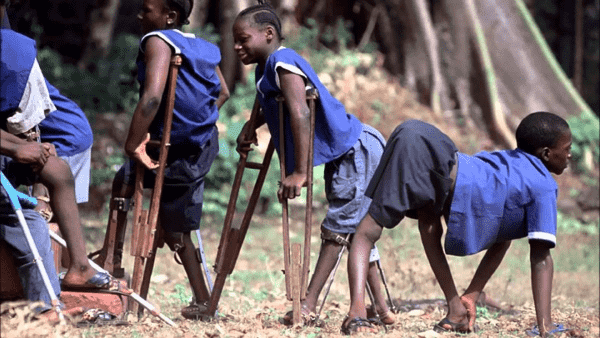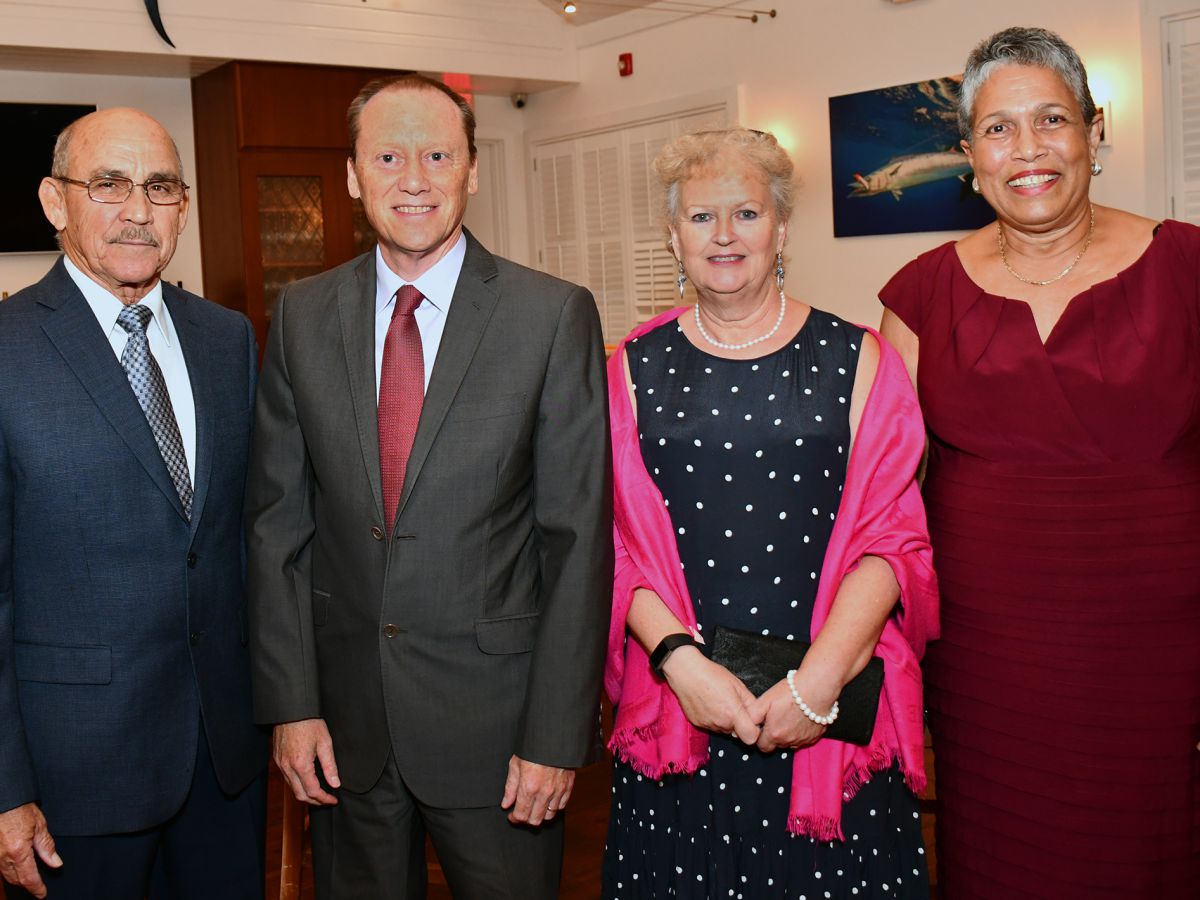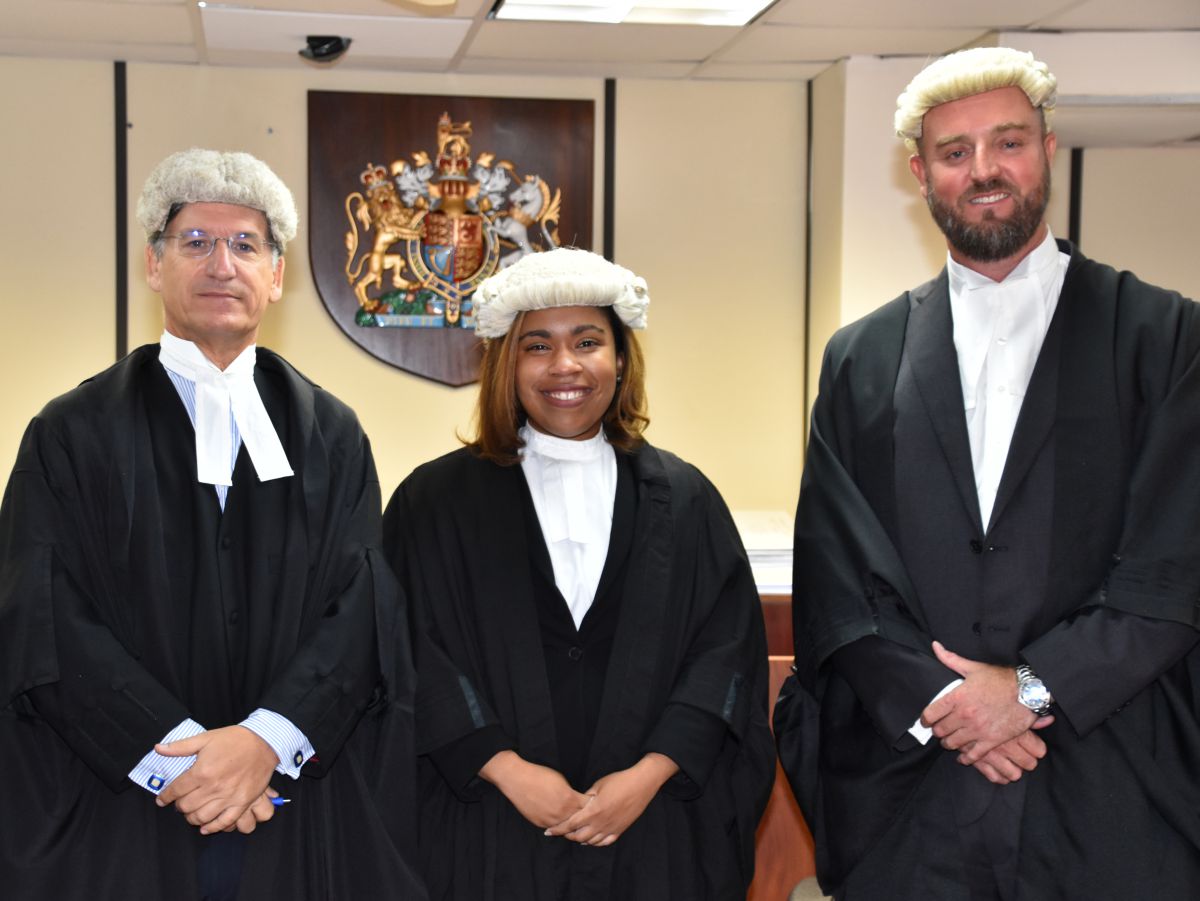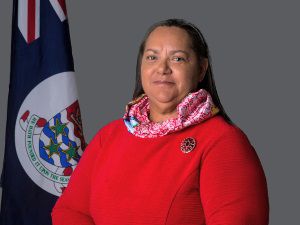(CNS Local Life): Danielle Coleman has returned from her secondment to the British Virgin Islands (BVI), describing the situation there as worse than the devastation caused by Hurricane Ivan on Grand Cayman in 2004. The Deputy Director of Preparedness and Planning with Hazard Management Cayman Islands (HMCI), was in the British Overseas Territory (BOT) for a month.
Coleman was helping the Red Cross, who were working in collaboration with the BVI Department of Disaster Management, following the widespread destruction wrought by Hurricane Irma and Hurricane Maria.
Coleman’s deployment as a disaster manager came immediately after HMCI Director McCleary Frederick spent two weeks with a Cayman Islands aid mission in Anguilla, which was hit earlier as Irma barrelled northwestward.
“It’s hard to imagine, but the impact of Irma on BVI, compared to Ivan on the Cayman Islands, was undoubtedly more severe,” said Coleman in a government press release. “Whilst in BVI there was little storm surge, the significantly stronger winds – widely reported as gusts up to 280mph. inside the hurricane – caused more structural damage. Most roofs were breached, roads severely damaged, vehicles and boats smashed, and the majority of utility poles destroyed. A large number of persons have been displaced and many of them have been laid off from their work due to lack of business.
“In the month that I was there, I don’t think I saw a single house that had been spared. At the very least, houses had shattered windows; at worst, the whole structure had been destroyed.”
Coleman witnessed heart-wrenching scenes of people begging for basic items such as food and tarpaulins, and heard many harrowing stories about how people’s lives had been turned upside down.
“As with Ivan, Hurricanes Irma and Maria have been a big equaliser,” she said. “Everyone living in BVI has been significantly affected, having lost many of their worldly possessions.”
At the same time, Coleman said she was also touched by the kindness which displaced persons extended to one another.
“Many people don’t have a roof over their heads and yet are willing to share a sandwich, or go the extra mile to help both neighbours and strangers,” she said. “It’s very humbling, and inspiring at the same time.”
Based between the BVI government’s national emergency operations centre and the Red Cross headquarters, as well as on location receiving and distributing aid supplies, Coleman worked non-stop nearly every day of the trip.
“In the month that I was there, I noticed a vast improvement in the way that the capital, Road Town, looked,” she said. “Roads were being cleared, houses and businesses were being rebuilt, make-shift restaurants being opened up, schools opening half-days and improvements were very evident.
“However, Road Town is the central commercial location, so one might expect it to be the priority focus. There were, of course, other areas that we visited where the rebuilding was not so apparent; some shelters are still housing people and many roofs are still open to the elements. Suffice to say, there is a long road ahead for the recovery efforts across BVI.”
Officers from the Royal Cayman Islands Police Service (RCIPS) were also in BVI helping with law enforcement.
“The RCIPS were a truly wonderful asset to our operations, checking in daily to see whether they could assist with security, manpower and relief distributions,” said Coleman. “They were all incredibly helpful and spent their ‘time off’ assisting with the Red Cross response. The UK police and military also helped at Red Cross headquarters when they weren’t on duty.”
Coleman returned to her desk at Cayman Islands Government last week, with some valuable lessons learnt from the BVI experience that will influence her work with Hazard Management. “Most notably, the crucial role that Community Emergency Response Teams (CERTs) play in the aftermath of a disaster, and the importance of the sustainability of these teams,” she said.
Premier Alden McLaughlin praised Coleman’s role in BVI, which has been among a number of humanitarian efforts by Cayman Islands Government since sister overseas territories were hit by hurricanes in September.
“I am very proud of the crucial part that Ms Coleman and the RCIPS played in BVI when they needed help the most,” he said “They are a shining example of the willingness of our people to step up and do whatever we can to alleviate the difficult, and sometimes desperate, circumstances that are wrought by a major storm.
“I also commend Mr Frederick, the RCIPS helicopter team, the medical personnel and all the other civil and public servants who have played an essential role in our humanitarian work in our sister territories.”
Minister for Home Affairs, Hon. Tara Rivers, lauded Ms. Coleman’s efforts, as well as Mr. Frederick’s earlier aid work in Anguilla.
“Given the impact of Hurricanes Ivan and Paloma on the Cayman Islands we can empathise with the people in the eastern Caribbean,” she said. “I thank the Hazard Management Cayman Islands team for their vital work in BVI and Anguilla during the aftermath of the devastation of Hurricanes Irma and Maria.
“I know that Ms Coleman has learnt a lot from this experience, which will, in turn, help us to better prepare for and cope should we experience such a natural disaster again. Mr Frederick also showed great service and leadership during his trip to Anguilla when they also needed our urgent assistance.”
In addition to helping BVI and Anguilla, the Cayman Islands has sent humanitarian missions to the Turks and Caicos Islands.
The government is further seeking to ensure that needs of the Caribbean BOTs affected by hurricanes this year will be on the agenda of the Overseas Territories Joint Ministerial Council meeting in London at the end of November.

